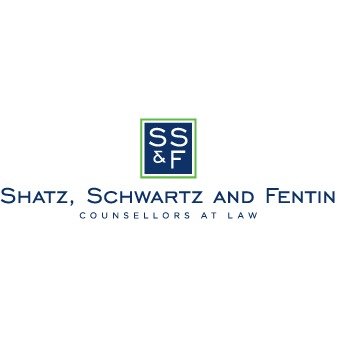Best Real Estate Lawyers in Massachusetts
Share your needs with us, get contacted by law firms.
Free. Takes 2 min.
Free Guide to Hiring a Real Estate Lawyer
Or refine your search by selecting a city:
List of the best lawyers in Massachusetts, United States
United States Real Estate Legal Questions answered by Lawyers
Browse our 2 legal questions about Real Estate in United States and read the lawyer answers, or ask your own questions for free.
- What is owner of condo units obligation as far as damage to the condo below their unit.
- The unit above my condo is managed by a Property Management company, and it was rented. During the time it was rented, there were water leaks that damaged my ceilings, and the Management Company. refuses to fix the ceiling so that it matches the rest of the ceiling. Even though... Read more →
-
Lawyer answer by Horus Legal Sulotion
Thank you for sharing the details of your situation. Based on the circumstances you described, you may have grounds to escalate the matter legally. You can file a case to request the appointment of a government engineer from Dubai Municipality...
Read full answer - What's the fee for reviewing a Home purchase contract.
- How much is your fee for looking over a contract on the house I am about to purchase.
-
Lawyer answer by US Legal Group 美国法律集团律师事务所
Hi. Thank you for reaching out to us regarding your upcoming property purchase. As a combined China & U.S. law firm, we specialize in real estate transactions and are well-equipped to review your contract.To provide you with a precise quote,...
Read full answer
United States Real Estate Legal Articles
Browse our 4 legal articles about Real Estate in United States written by expert lawyers.
- NY Lease Audits 2026: Mixed-Use Liabilities
- Commercial real estate in the United States is governed mainly by state law, but federal rules on discrimination, financing, and taxation still shape how you invest, lease, and manage property. For mixed-use buildings in New York City, new "Good Cause Eviction" style protections for certain residential tenants can cap rent... Read more →
- NYC Local Law 97 Fines: Defend Owners 2026
- Starting in 2026, New York City will begin collecting Local Law 97 emissions fines for buildings that exceeded their 2024 limits, at $268 per metric ton of CO2-equivalent over the cap. Owners can significantly reduce or defer penalties by documenting "Good Faith Efforts," including signed retrofit contracts, permits, financing commitments,... Read more →
- Squatters Rights in Texas 2026:How New Laws Expedite Removal
- Real estate law in the United States is mostly state based, but key federal laws like the Fair Housing Act and RESPA still shape every sale, lease, and loan. Title, deeds, and recording with the county clerk or recorder are what legally prove who owns a property and who has... Read more →
About Real Estate Law in Massachusetts, United States
Real estate law in Massachusetts governs buying, selling, leasing, and using land and buildings within the state. This field broadly covers residential and commercial property transactions, landlord and tenant relationships, property development, zoning regulations, and more. Massachusetts real estate law is complex due to its unique traditions, evolving statutes, and court decisions. For buyers, sellers, landlords, tenants, and developers, understanding these rules is essential to protect your rights and investments.
Why You May Need a Lawyer
Many situations in real estate can benefit from legal advice or representation. Some of the most common reasons people seek a real estate lawyer in Massachusetts include:
- Buying or selling a home, especially when there are unusual circumstances or potential disputes.
- Reviewing and negotiating purchase and sale agreements or commercial leases.
- Handling property disputes, such as boundary disagreements or title issues.
- Representing clients in landlord-tenant matters, including evictions and lease enforcement.
- Guidance through the foreclosure process, whether as a homeowner or an investor.
- Assisting in property development, including navigating local zoning and permitting laws.
- Transferring ownership due to death, divorce, or gifting property.
- Resolving issues related to condominium associations or homeowners associations.
Legal counsel can help you navigate requirements, avoid costly mistakes, and protect your interests.
Local Laws Overview
Massachusetts real estate law features several notable local rules and customs:
- Attorney Involvement: Unlike some other states, Massachusetts often requires attorneys to be involved in real estate closings, ensuring a higher standard of due diligence and document compliance.
- Title and Deeds: The state uses two land recording systems: Recorded Land and Registered Land. Understanding the distinction is crucial for verifying ownership and title status.
- Disclosure Requirements: Sellers must disclose known lead paint hazards in properties built before 1978. There are also requirements for disclosure of septic systems, property boundaries, and certain material defects.
- Landlord-Tenant Laws: Massachusetts provides strong protections for tenants, including strict rules about security deposits, eviction processes, and habitability standards.
- Zoning and Use Regulations: Local municipalities set zoning ordinances that affect what property owners can do with their land. Developers and buyers must pay attention to these when planning improvements or new construction.
- Foreclosure Procedures: Massachusetts uses a non-judicial foreclosure process, but homeowners have specific rights and protections under state law.
- Homestead Protection: Massachusetts law allows homeowners to protect a portion of their equity from certain creditors.
Frequently Asked Questions
Do I need a lawyer to buy or sell a house in Massachusetts?
While not legally required to hire a lawyer, most buyers and sellers involve an attorney to review documents, facilitate the closing, and ensure that their rights are protected throughout the transaction.
What is the difference between Recorded Land and Registered Land?
Recorded Land refers to the traditional method of land registration, where documents are publicly recorded to establish ownership. Registered Land is part of a special system managed by the Land Court, providing a higher level of title security and government guarantee of ownership.
Are there specific disclosure requirements for home sellers?
Yes, sellers must disclose the presence of lead paint in properties built before 1978, information about septic systems, and certain material property defects. Failing to do so can lead to legal claims from buyers.
What tenant protections are unique to Massachusetts?
Massachusetts offers strong tenant protection laws, including limits on how much a landlord can request upfront, strict security deposit handling requirements, and detailed rules for evictions and habitability.
How is property line or boundary disputes resolved?
Property boundary disputes can often be resolved through negotiation, obtaining a professional survey, or legal action if necessary. An attorney can help determine your property's exact boundaries and negotiate or litigate disputes.
Can a landlord terminate a lease early or evict a tenant easily?
No, Massachusetts requires landlords to follow a regulated eviction process with strict notice and procedural requirements. Early lease termination is governed by the lease terms and state law.
What is homestead protection and how do I claim it?
A Homestead Declaration allows Massachusetts homeowners to protect up to a certain amount of home equity from most creditors. You can claim it by filing a declaration at your Registry of Deeds.
How are foreclosures handled in Massachusetts?
Foreclosures in Massachusetts are typically "non-judicial," meaning the lender can foreclose without going to court, provided they follow required notice and procedural steps. Homeowners have specific notice and redemption rights.
What are the steps to develop or improve property in Massachusetts?
First, check local zoning laws and obtain necessary permits. You may need site plan approvals, environmental reviews, and compliance with building codes. Legal counsel can streamline the process and help secure required approvals.
What should I do before signing a commercial lease?
Have a real estate lawyer review the lease terms and negotiate on your behalf. Massachusetts law governs what can and cannot be included in leases, but many terms are negotiable and should be aligned with your business needs.
Additional Resources
- Massachusetts Registry of Deeds Offices - for recording property documents
- Massachusetts Land Court - for registered land issues and certain property disputes
- Office of Consumer Affairs and Business Regulation - for information on home buying and renting
- Massachusetts Legal Services agencies - for free or low-cost legal assistance
- Massachusetts Bar Association - for lawyer referrals and consumer guides
- City and Town Planning Departments - for local zoning and permitting information
Next Steps
If you need legal assistance with a real estate matter in Massachusetts, start by identifying the nature of your issue, whether it is transactional, a dispute, or relates to compliance. Gather all relevant documents and correspondence regarding your property or transaction. Contact a qualified real estate attorney who is familiar with Massachusetts law and local regulations. Many lawyers offer an initial consultation to discuss your situation and explain how they can help. If affordability is a concern, explore local legal aid programs. Stay organized, ask questions during your consultation, and take notes to help make informed decisions about your real estate needs.
Lawzana helps you find the best lawyers and law firms in Massachusetts through a curated and pre-screened list of qualified legal professionals. Our platform offers rankings and detailed profiles of attorneys and law firms, allowing you to compare based on practice areas, including Real Estate, experience, and client feedback.
Each profile includes a description of the firm's areas of practice, client reviews, team members and partners, year of establishment, spoken languages, office locations, contact information, social media presence, and any published articles or resources. Most firms on our platform speak English and are experienced in both local and international legal matters.
Get a quote from top-rated law firms in Massachusetts, United States — quickly, securely, and without unnecessary hassle.
Disclaimer:
The information provided on this page is for general informational purposes only and does not constitute legal advice. While we strive to ensure the accuracy and relevance of the content, legal information may change over time, and interpretations of the law can vary. You should always consult with a qualified legal professional for advice specific to your situation.
We disclaim all liability for actions taken or not taken based on the content of this page. If you believe any information is incorrect or outdated, please contact us, and we will review and update it where appropriate.
Browse real estate law firms by service in Massachusetts, United States
Massachusetts, United States Attorneys in related practice areas.
Browse real estate law firms by city in Massachusetts
Refine your search by selecting a city.













